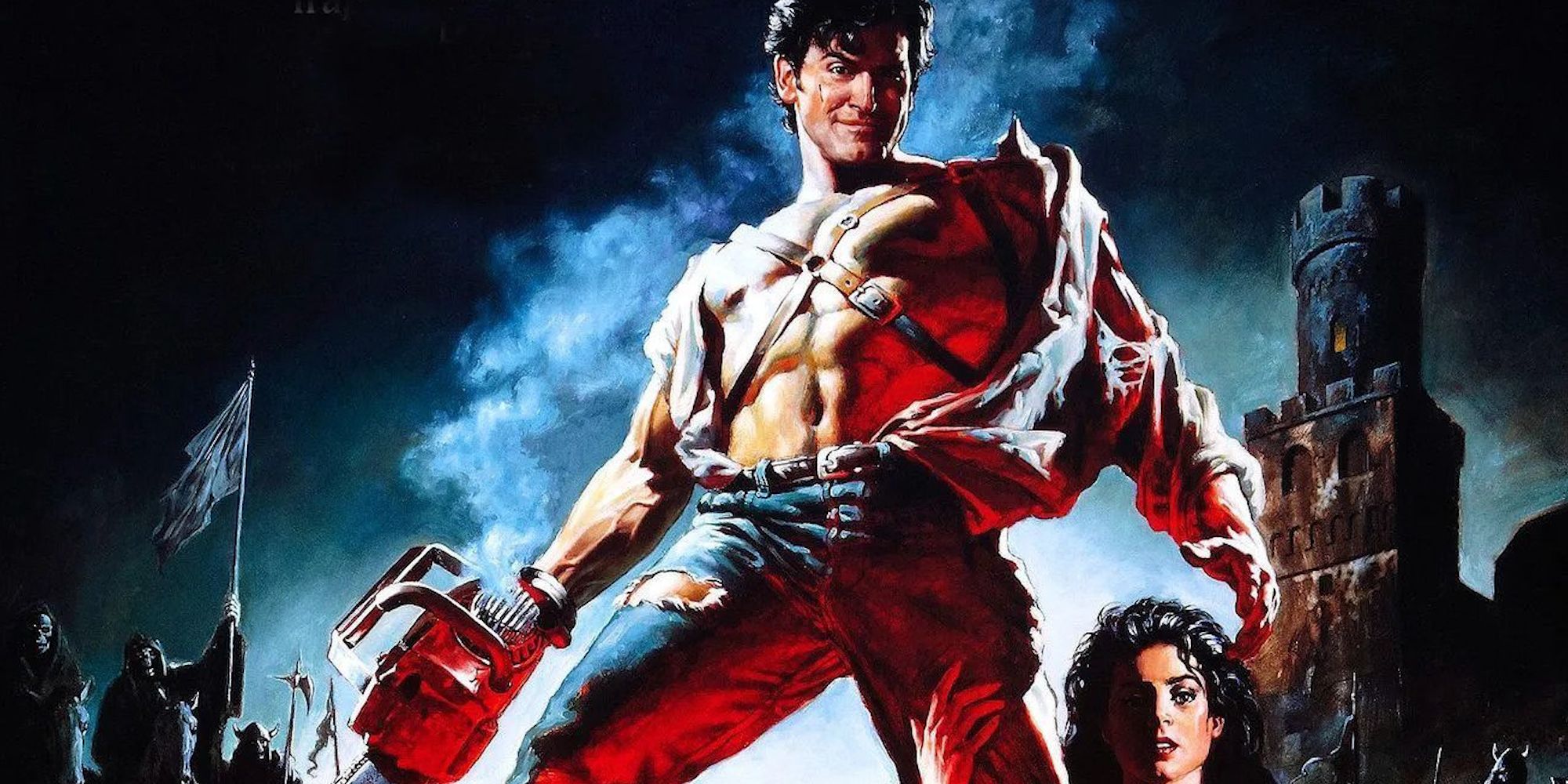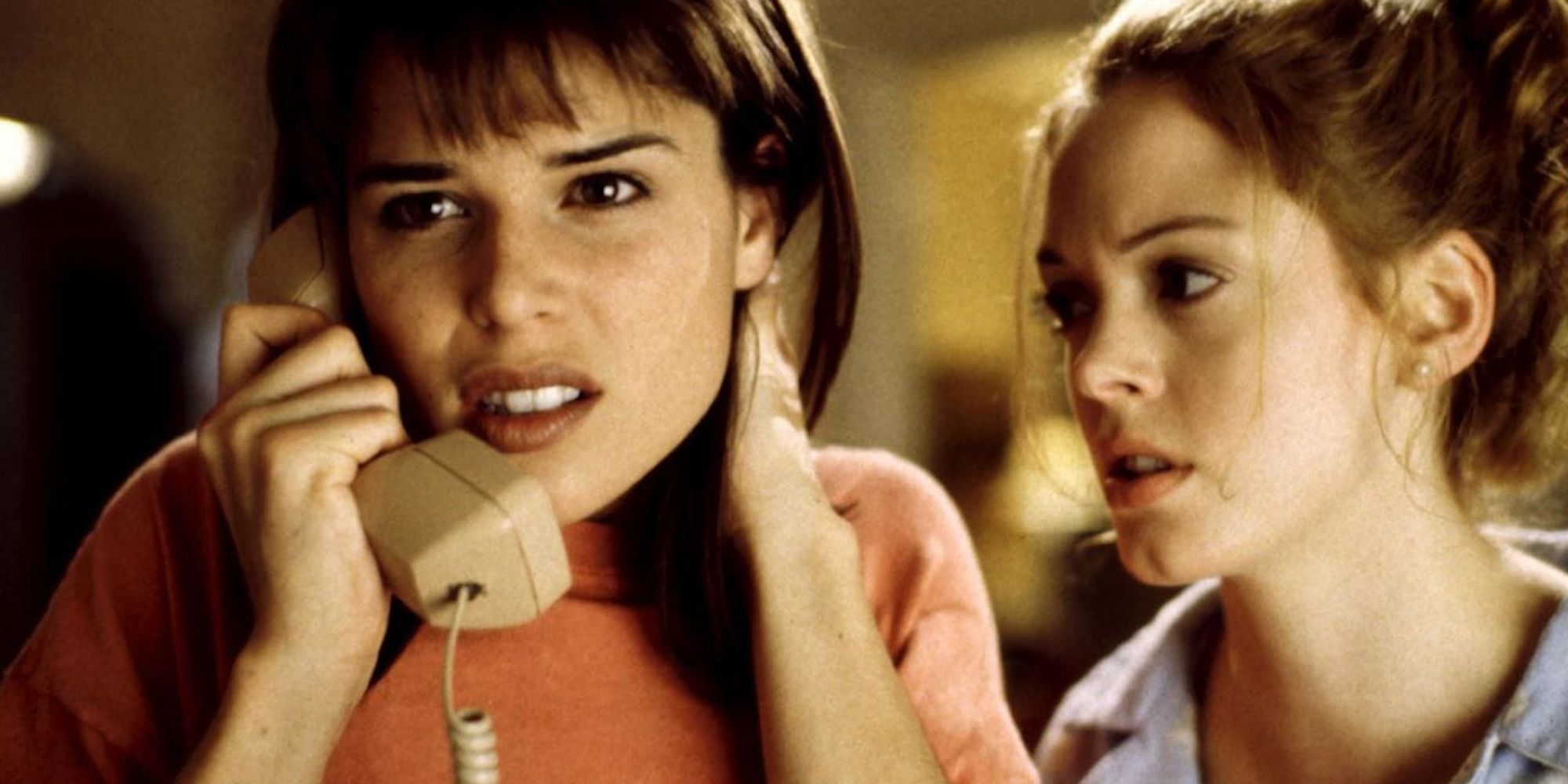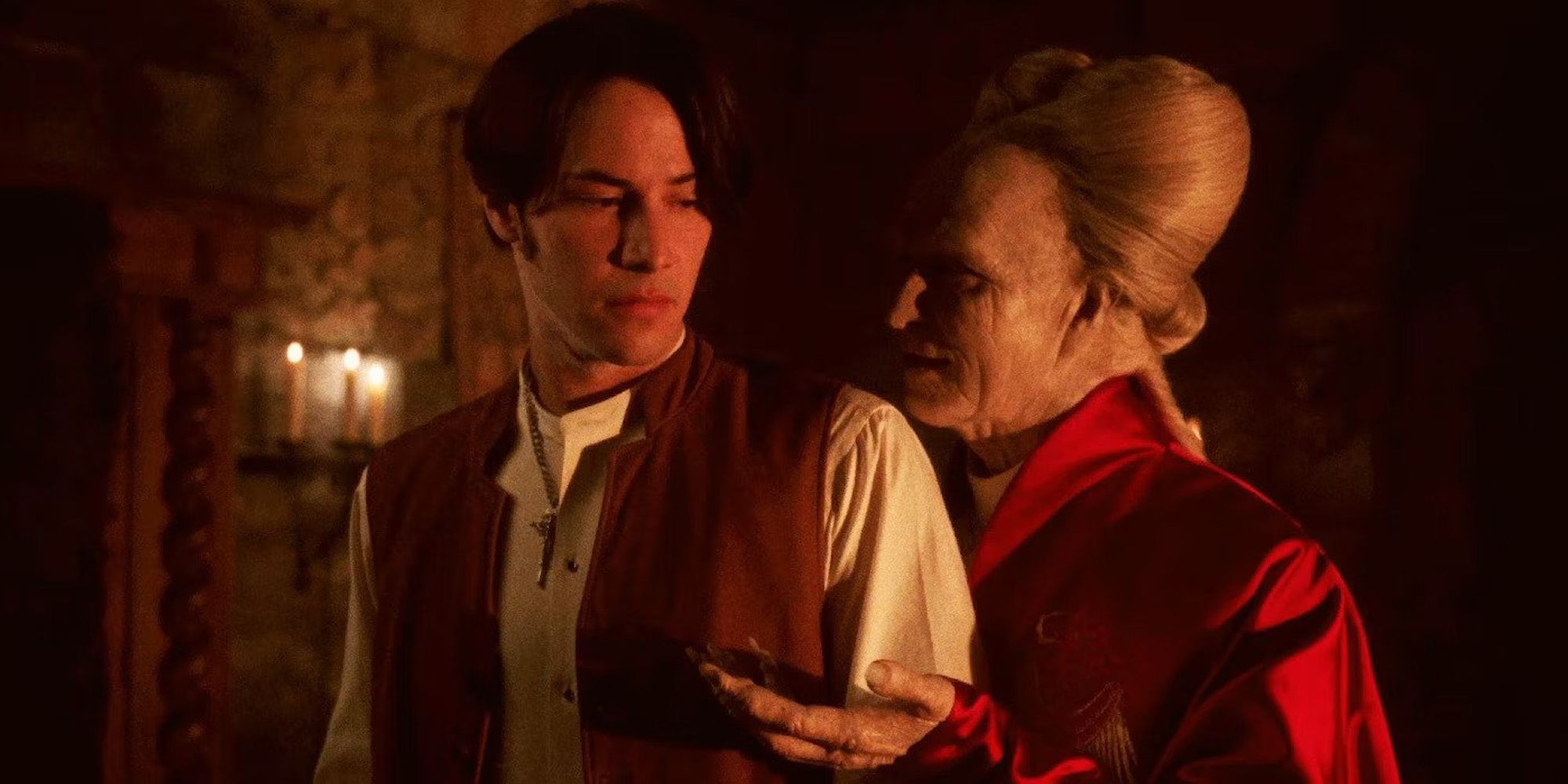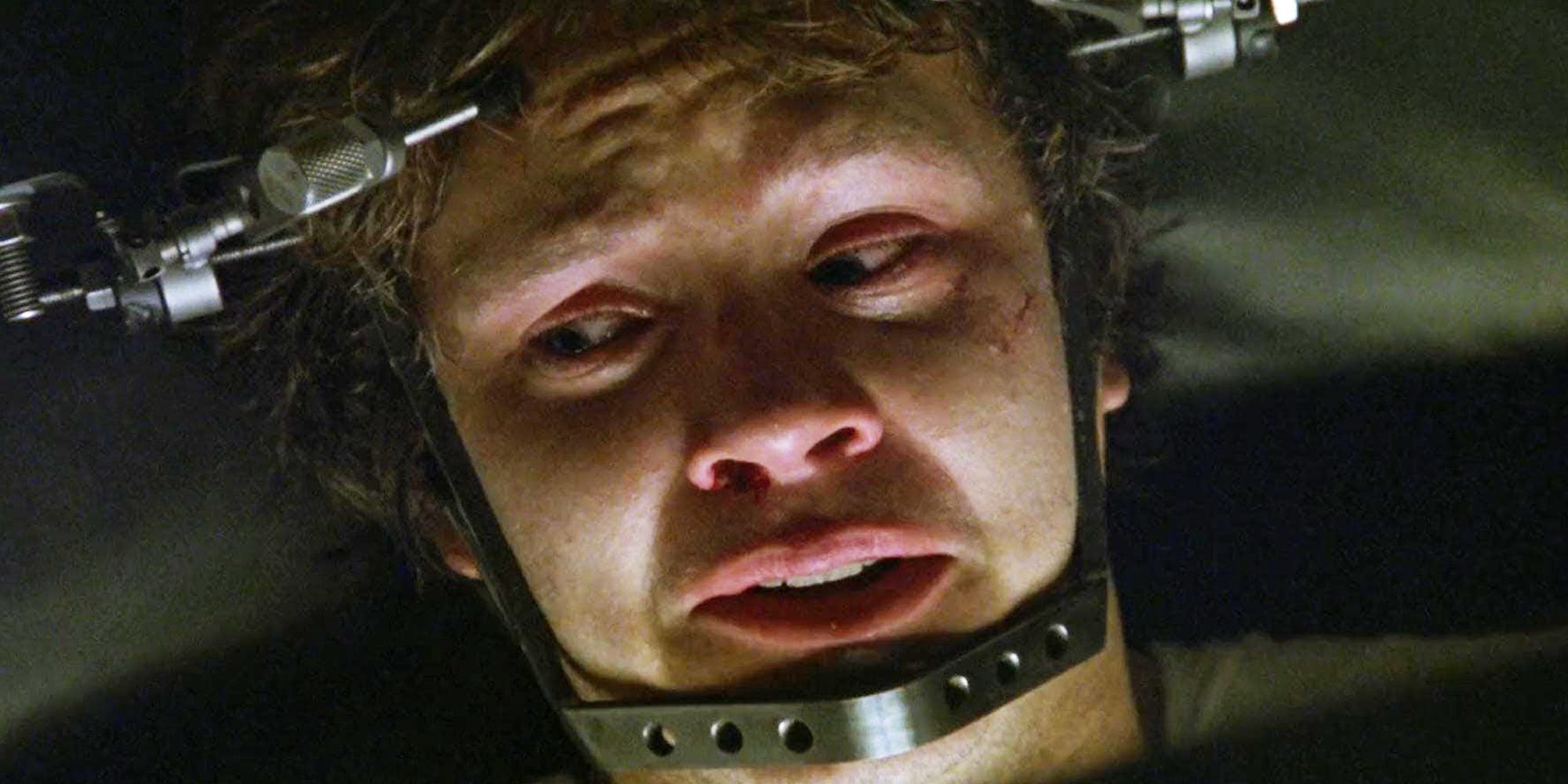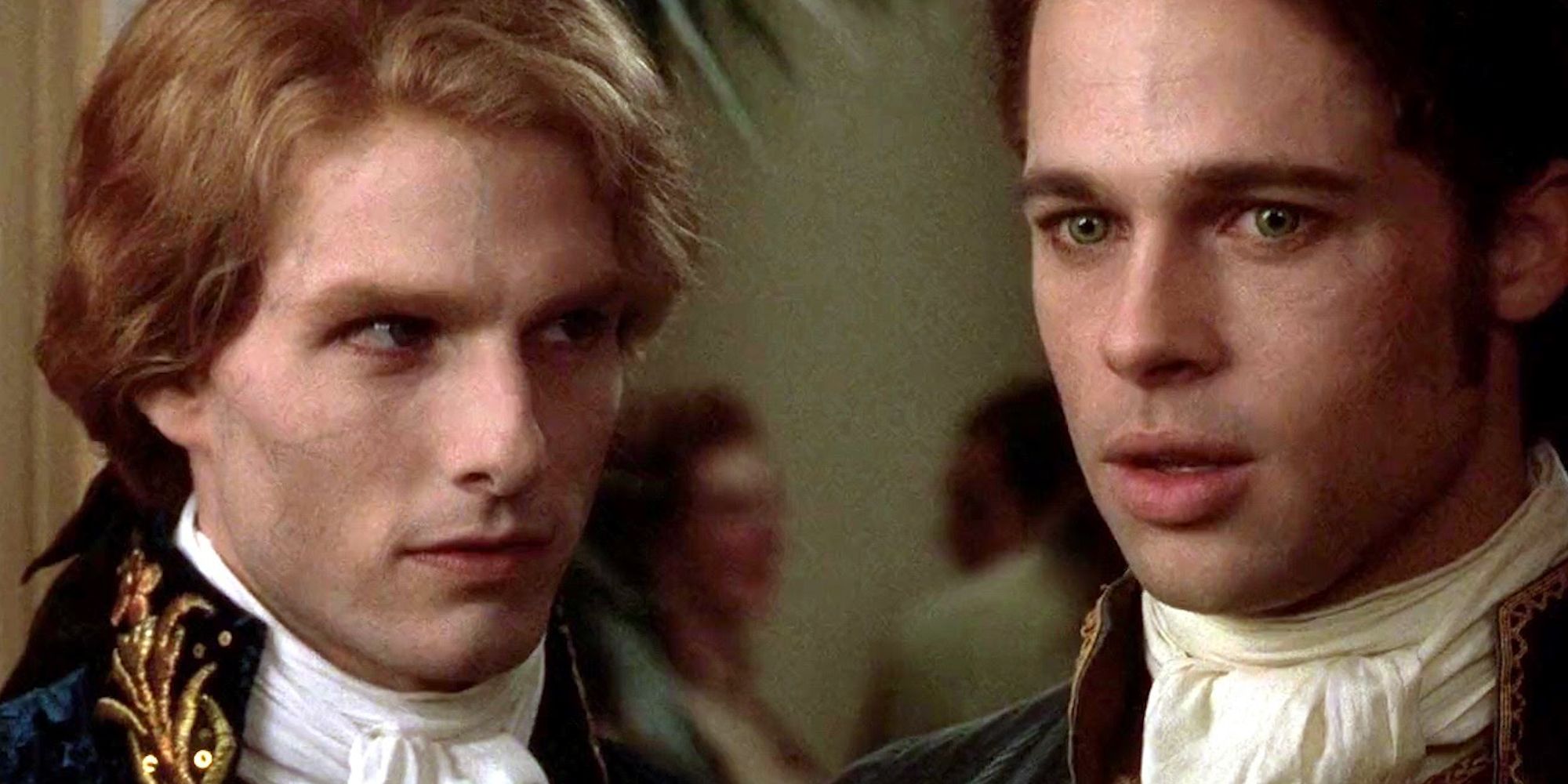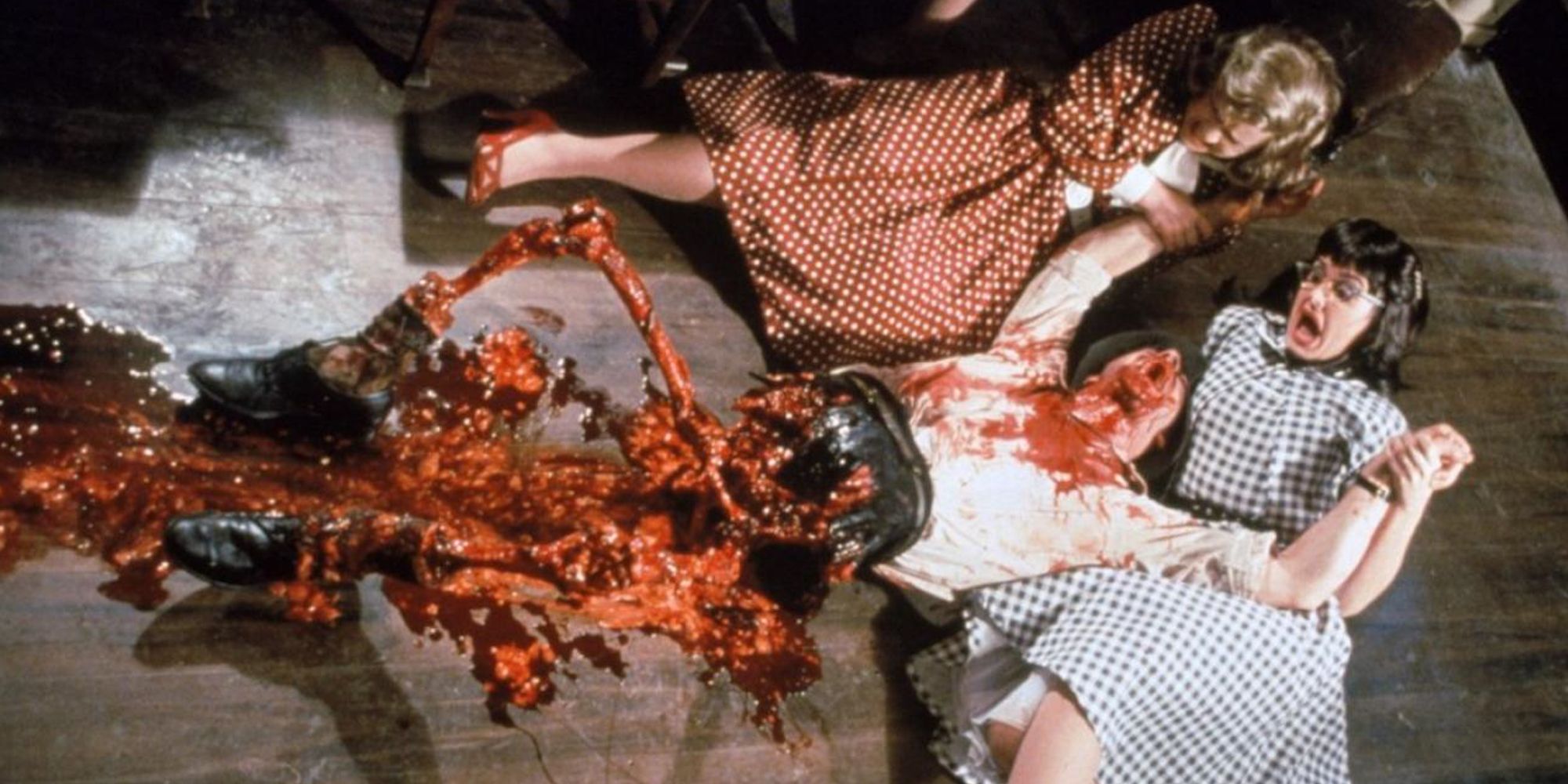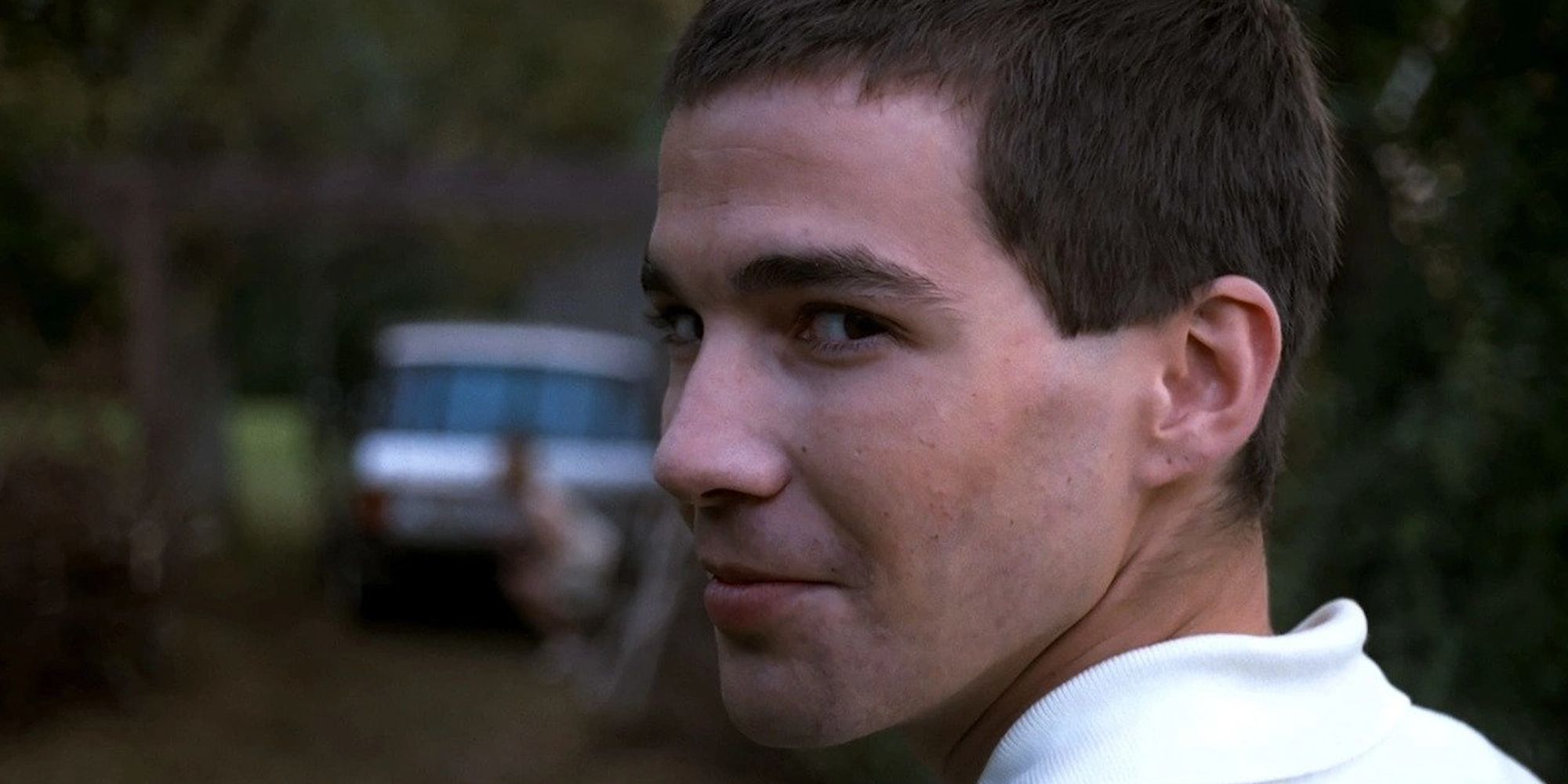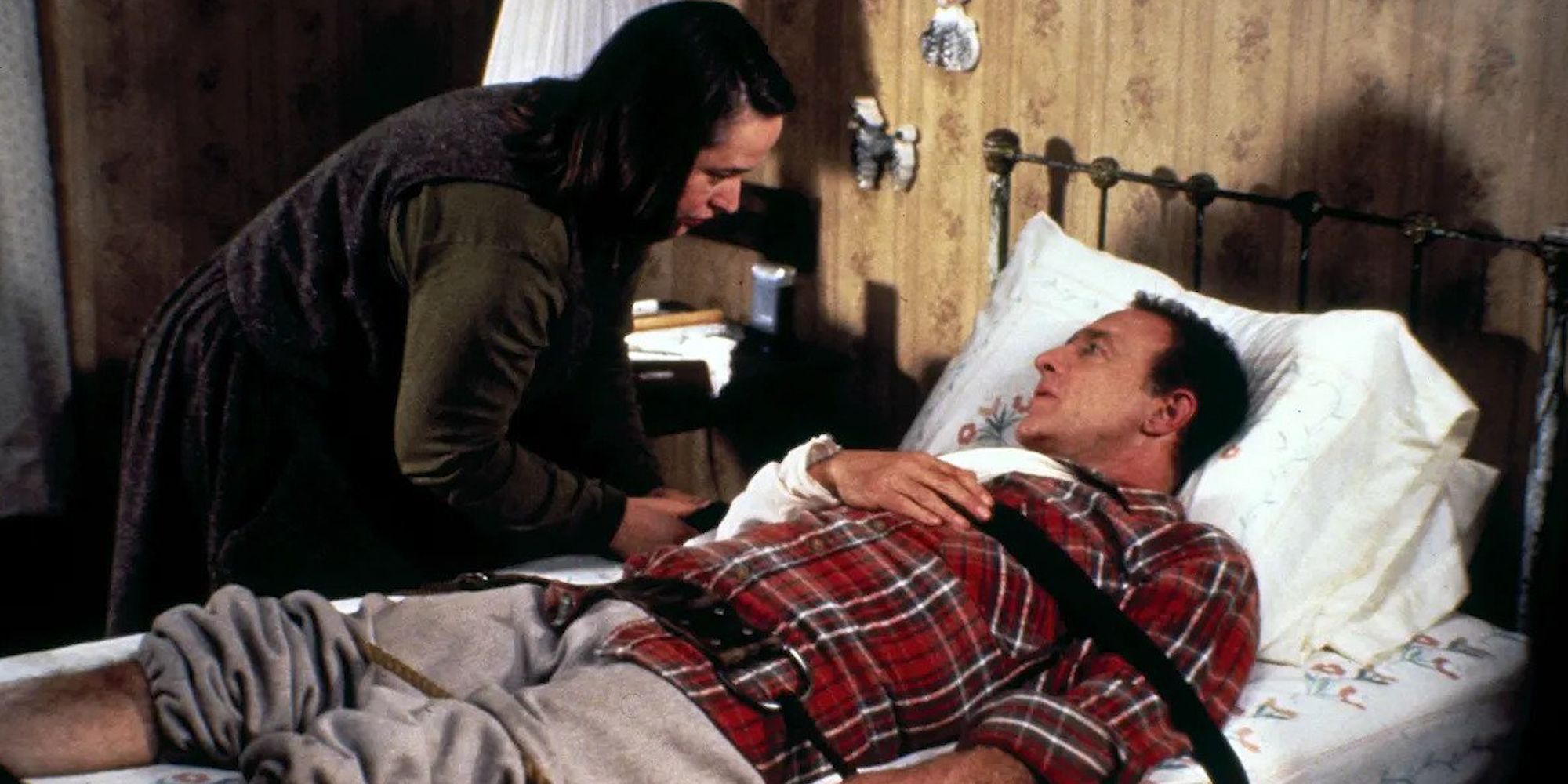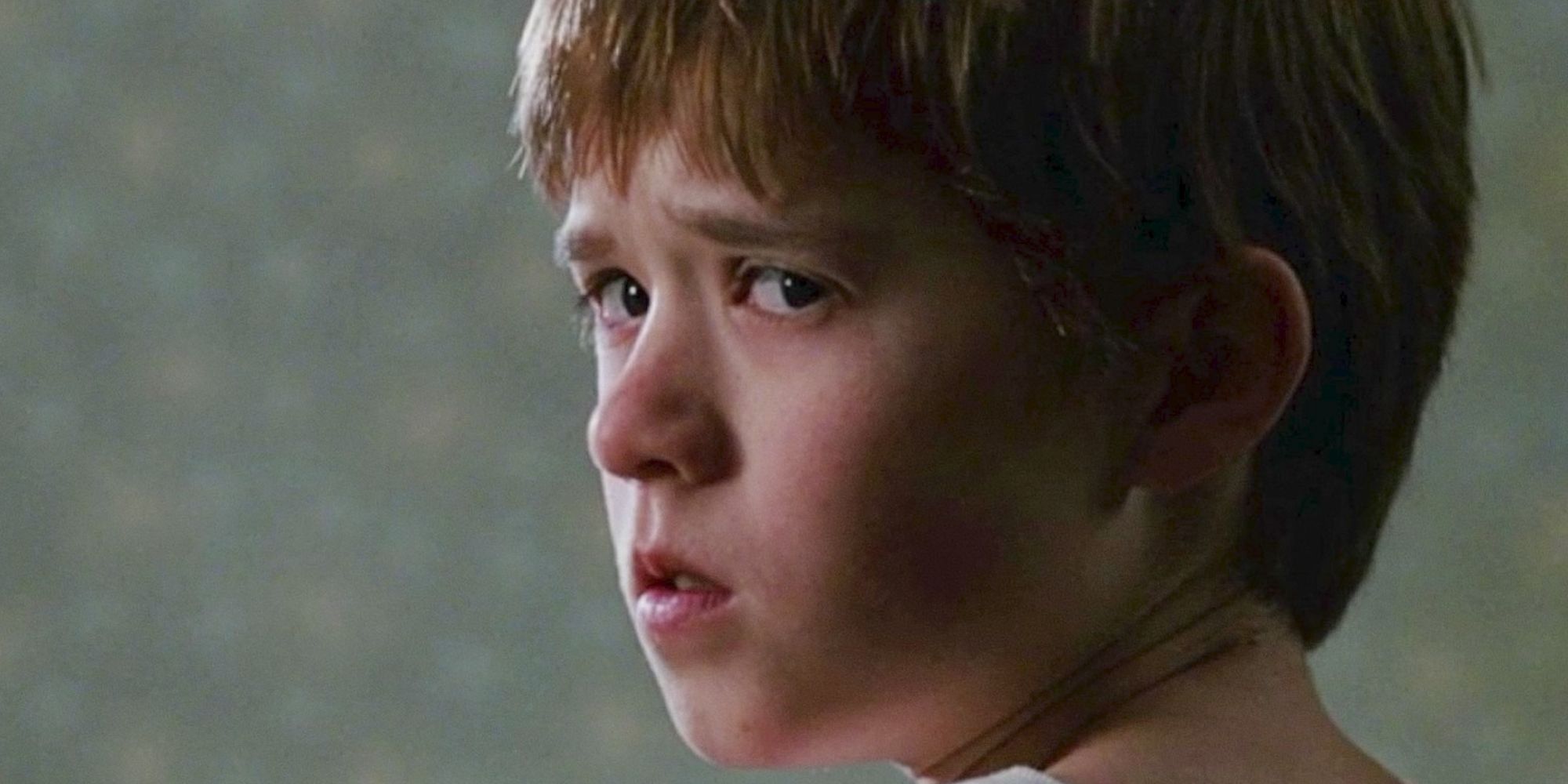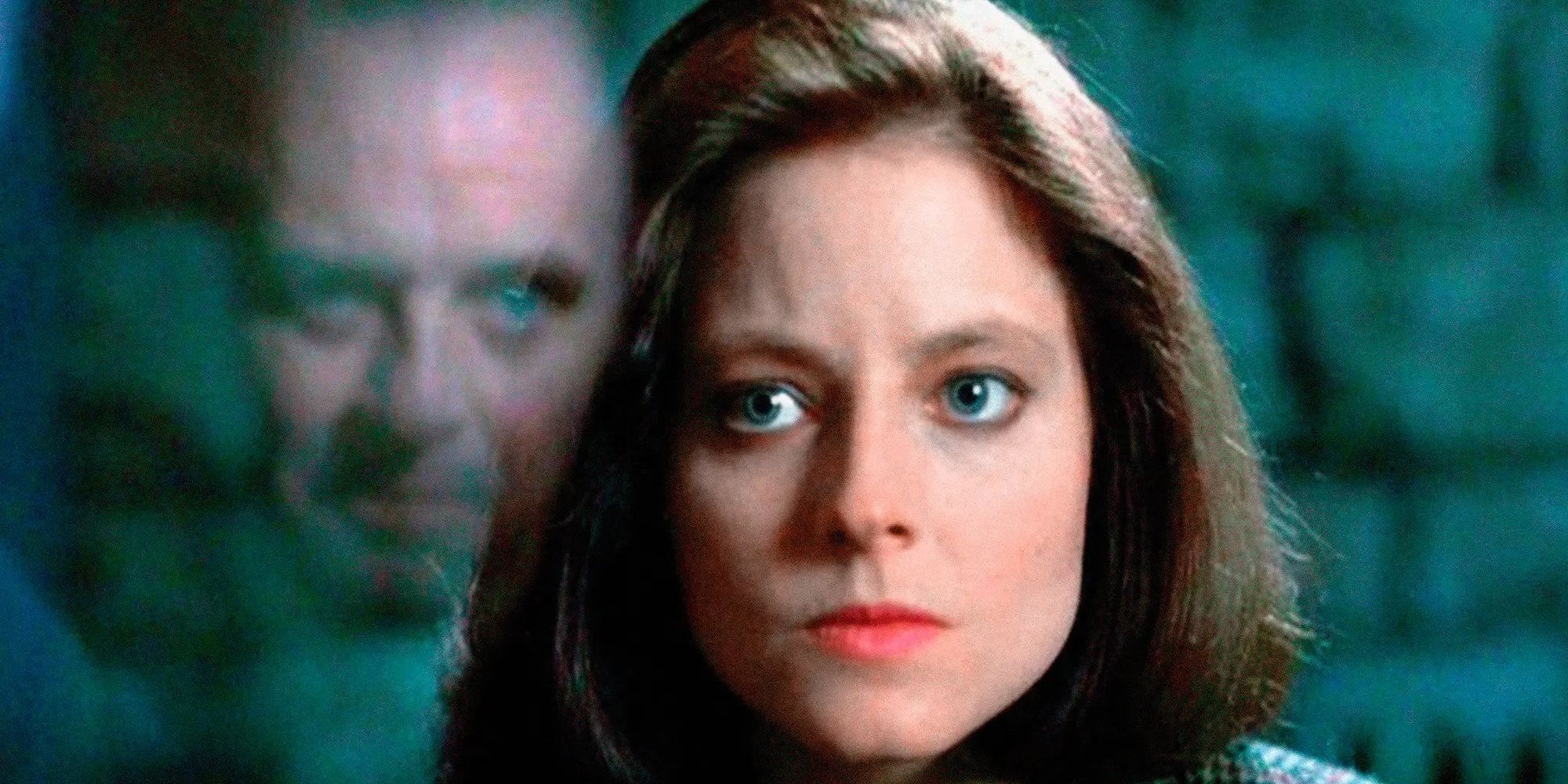The '90s were a transitional decade for horror. It delivered heirs to the '70s slashers in the form of Scream, Jason Goes to Hell, and Freddy's Dead. New entries in established franchises, like Alien 3, Hellraiser 3, and Sam Raimi's Army of Darkness, made a big impact. Prestige horror also got a boost with the critical success of The Silence of the Lambs, The Sixth Sense, and Misery. Some international horrors like Ring also found success with English-language audiences.
Admittedly, the '90s didn't produce as many classics or groundbreaking horrors as the '60s, '70s, or even '80s, but the decade nevertheless has its gems. Peter Jackson arrived on the scene with gory comedy-horror movies. Guillermo Del Toro pushed boundaries with Cronos and Mimic. Even Quentin Tarantino dipped his toes in the genre with From Dusk Til Dawn. Movie buffs looking for '90s nostalgia—and some good frights—should be more than satisfied.
'Scream' (1996) — IMDb: 7.4/10
With Scream, Wes Craven inverts the slasher clichés he helped create back in 1984 with A Nightmare on Elm Street. The film has a bog-standard premise: a mask-wearing killer stalks high school student Sidney (Neve Campbell) and her friends. But Scream revitalized the subgenre by having lead characters who had watched a lot of slasher films. They are familiar with the slasher tropes, making for some great meta moments.
As a result, Scream morphs into a self-aware send-up of the genre, full of tongue-in-cheek comments and references. Fortunately, Craven still packs enough scares to justify the 'horror' in comedy-horror.
'Army of Darkness' (1992) — IMDb: 7.4/10
Sam Raimi earned his place in the horror pantheon with the thrilling, low-budget Evil Dead and its comedic sequel. The third film in the Evil Dead series, Army of Darkness, was not quite as well-received as the first two but has since acquired cult status. It follows hero Ash Williams (Bruce Campbell) as he struggles to escape from the Middle Ages, where he has become trapped, armed only with his trustee chainsaw hand.
As always, Campbell delivers a committed, energetic performance, cementing his status as one of horror's most iconic leading men. Raimi also ups his directorial game here, especially with the skeleton puppets and elaborately choreographed battle scenes.
'Dracula' (1992) — IMDb: 7.4/10
Fresh off The Godfather Part III, Francis Ford Coppola decided to bring his unique perspective to Bram Stoker's classic vampire story. His film follows Dracula's (Gary Oldman) pursuit of James Harker's (Keanu Reeves) fiancé Mina (Winona Ryder). The count believes that Mina is the reincarnation of his wife, Elisabeta.
The story gets a little muddled sometimes, but the cinematography and set design are excellent and immersive throughout. The cast and crew deserve credit for reinvigorating the vampire genre when it appeared stale. In particular, Coppola's casting of young stars as vampires influenced many subsequent films. Not to mention, it's worth it just for the great, larger-than-(un)life performance by Gary Oldman.
'Jacob's Ladder' (1990) — IMDb: 7.4/10
Tim Robbins stars in this psychological horror about Jacob, a Vietnam vet struggling to understand his past. Traumatized by the war, Jacob experiences frequent flashbacks and bizarre visions. As he pursues the truth, he realizes a deeper conspiracy is at play.
The film succeeds thanks to Robbins' believable, intense performance largely. Jacob's Ladder influenced later horrors like Silent Hill and The Sixth Sense and developed a cult following. A remake starring Michael Ealey was released in 2019.
'Interview with the Vampire' (1994) - IMDb: 7.5/10
Based on Anne Rice's bestselling novel, Interview with the Vampire charts the epic, multi-century life of the vampire Lestat (Tom Cruise), especially his friendship/rivalry with Louis (Brad Pitt) and their turning of a young girl named Claudia (Kirsten Dunst). The supporting cast is also packed with '90s Hollywood royalty, including Christian Slater, Antonio Banderas, and Stephen Rea.
Using Lestat's interview with a journalist as a framing device, the film depicts the sadness and nihilism that come with immortality. Many more recent vampire movies glamorize the creatures and their lifestyle, but here the viewer gets a grittier version. Constantly feeding on blood and watching those around you age as your body remains unchanging takes a genuine toll on the characters. Fans seeking more vampiric goodness should check out the series of the same name that premiered this year.
'Dead Alive' (1992) — IMDb: 7.5/10
This zany comedy-horror follows Lionel (Timothy Balme), a young man who lives with his domineering mother, Vera (Elizabeth Moody). After a Sumatran rat monkey bites Vera, she seems to die and return as a zombie. She bites others, who transform, setting off a zombie apocalypse that Lionel has to somehow keep under control.
Dead Alive (aka Braindead) was Peter Jackson's third film as director, and he was still finding his feet. The film doesn't come close to The Fellowship of the Ring, Heavenly Creatures, or even The Frighteners. However, it bursts with enough creativity and filmmaking passion to make for one of the most entertaining comedy horror movies of the '90s - not to mention the goriest.
'Funny Games' (1997) — IMDb: 7.5/10
Austrian director Michael Haneke is celebrated for his intense dramas, including The White Ribbon and Amour, which wrestle with weighty themes like fear and dementia. However, his darkest work is this psychological horror about two young men holding a family hostage at their vacation home and torturing them.
The hostage-takers subject the family to sadistic games, for which they offer no motive or explanation. One of them even breaks the fourth wall and talks directly to the audience, but these asides only add more mystery rather than clarity. Haneke directed a shot-for-shot English remake in 2007 starring Naomi Watts and Tim Roth, but the original is more unsettling.
'Misery' (1990) — IMDb: 7.8/10
The second Stephen King adaptation by Rob Reiner—following the excellent Stand By Me—is more frightening but just as well-crafted. After a car accident, novelist Paul Sheldon (James Caan) wakes up in the home of Annie Wilkes (Kathy Bates), a lonely woman who loves his books. At first, Annie seems to be nursing Paul back to help, but quickly it becomes clear that she is holding him captive. She demands that he write one more novel just for her.
The film is essentially a two-hander, and it succeeds thanks to excellent performances by Caan and Bates. Bates nails Wilkes's smothering blend of kindness and cruelty. Caan, by contrast, is someone the audience can't help but root for. We want so desperately to see him freed that his escape attempts make for taut, edge-of-your-seat moments.
'The Sixth Sense' (1999) — IMDb: 8.2/10
Bruce Willis stars as a child psychologist counseling a boy (Haley Joel Osment) who claims to see the spirits of the dead. Director M. Night Shyamalan confidently blends scares and drama to craft one of the stand-out psychological horrors of the '90s. His plot twists would get tired with later films, but with The Sixth Sense, they felt fresh and thrilling.
The film also makes for one of Willis's most interesting roles. He gives an unusually tender performance and has great chemistry with Osment. In the decades since, the film has earned its place as a horror classic. "I see dead people" alone must be one of the most famous (and most parodied) lines in movie history.
'The Silence of the Lambs' (1991) — IMDb: 8.6/10
FBI agent Clarice Starling (Jodie Foster), pursuing the serial killer Buffalo Bill (Ted Levine), turns to former psychiatrist and convicted cannibal Hannibal Lecter (Anthony Hopkins) for advice on how to get into the mind of a murderer. After delivering great work in the '80s with Something Wild and the concert film Stop Making Sense, director Jonathan Demme leveled up on all fronts with The Silence of the Lambs. It's darker and grander than anything he had done before.
The cast members also all shine, though none can compete with Hopkins. Leatherface and Michael Meyers might be scary, but they are practically cardboard cutouts compared to Lecter, who is three-dimensional, calm, and sophisticated. It's easily one of the best villain performances in cinema history. The Silence of the Lambs swept the Oscars that year, becoming the third film to win in all the major categories. It also made history as the first horror to win Best Picture.

